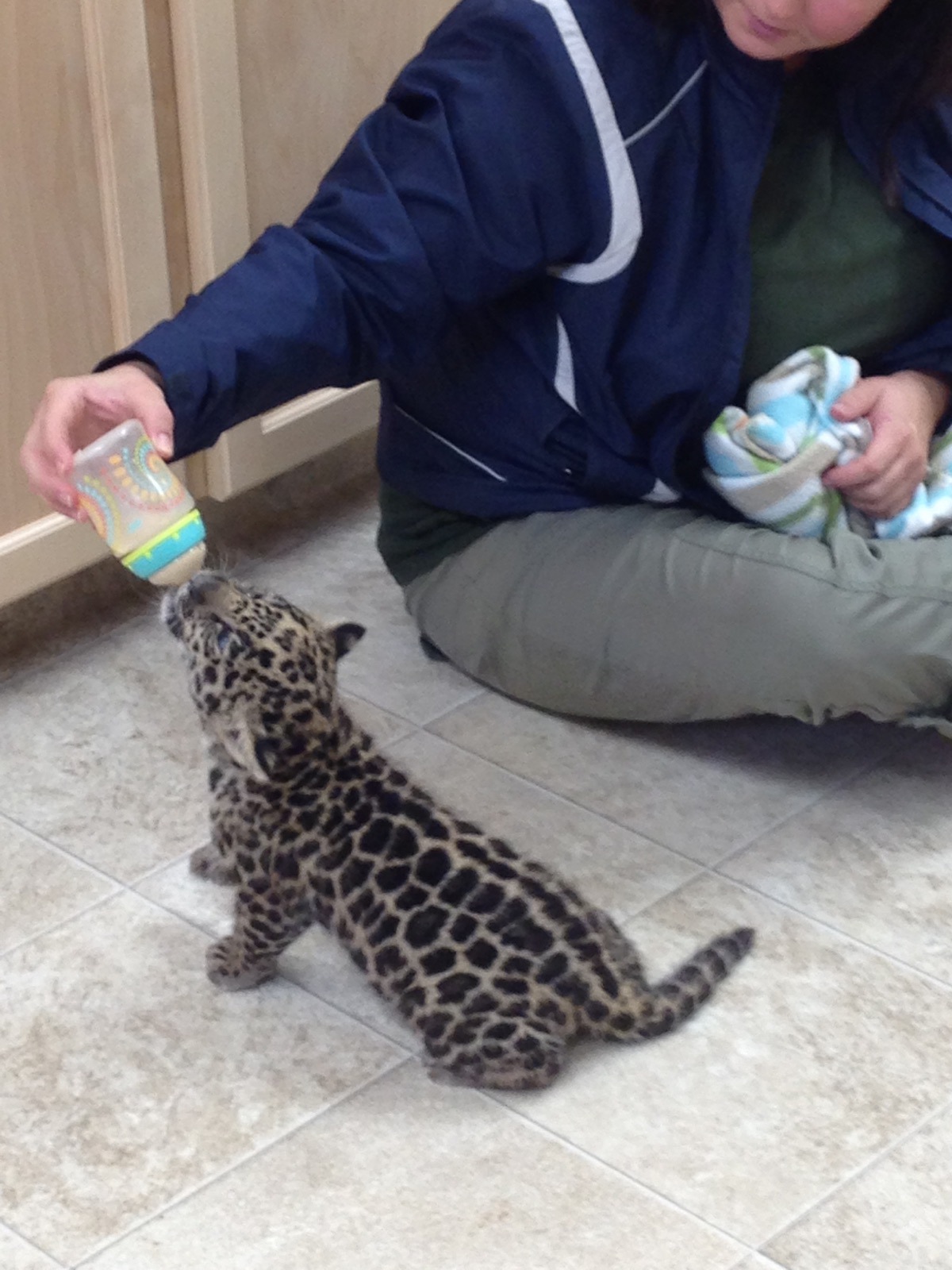MONCTON, N.B. – The Magnetic Hill Zoo has successfully bred two jaguars, welcoming a baby jaguar, the first one ever born at the zoo.

Weighing only six pounds at seven weeks old, baby Balki looks and acts like a house cat now, but he will grow up quickly. Zoo staff feed him seven times a day and he eats about 15 to 17 per cent of his body weight daily.
On the menu: kitten milk replacer, mixed with chicken broth and some wet cat food.
“It would kind of be equivalent to a human baby getting infant formula,” said Tiffany Bateman, a zookeeper at the Magnetic Hill Zoo. “It’s all blended together every day and made kind of into a milkshake for him then put in a bottle.”
Adult males can weigh up to 350 pounds and reach more than six-feet in length. Jaguars, which are native to Latin America, are the third largest cat species behind tigers and lions.
Balki’s parents are known as melanistic jaguars because they have a mutation darkening their coat. They appear black, but do have some spots. The gene is dominant and there was only a 25 per cent chance they would produce a normal spotted cub, like Balki. Spotted jaguars are more common in the wild.
The zoo got the male and female jaguars less than two years ago, hoping they would be able to reproduce. When they suspected that the female might be pregnant they separated her from the male jaguar and built her a nest in her pen. Bateman said the zookeepers came in one morning to check on her and found little Balki.
When he was born, he weighed only one pound.
“He’s like a human baby from what I understand,” she said. “He eats, then he plays for about 20 minutes, gets tires, goes to bed, wakes up again, eats, then it’s just kind of a cycle like that.”
Balki will be staying at the zoo until the end of November and then he will be sent to a zoo in Ontario. Now that the breeding program has been successful, the zoo hopes to continue with it in the future.




Comments